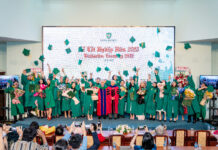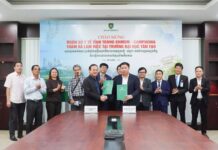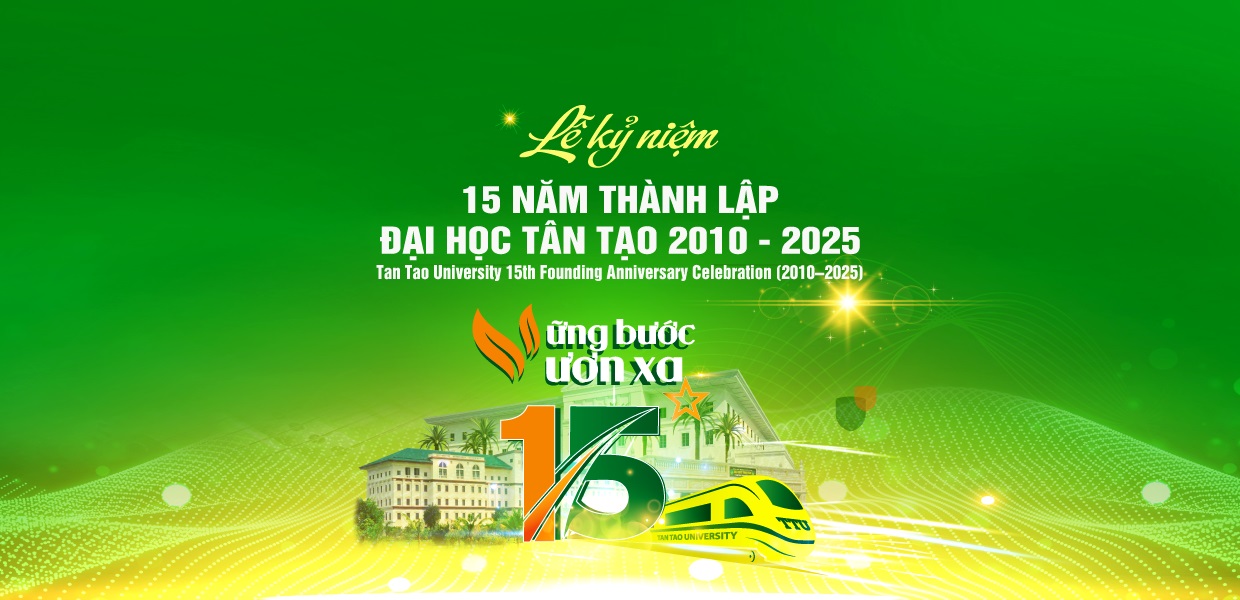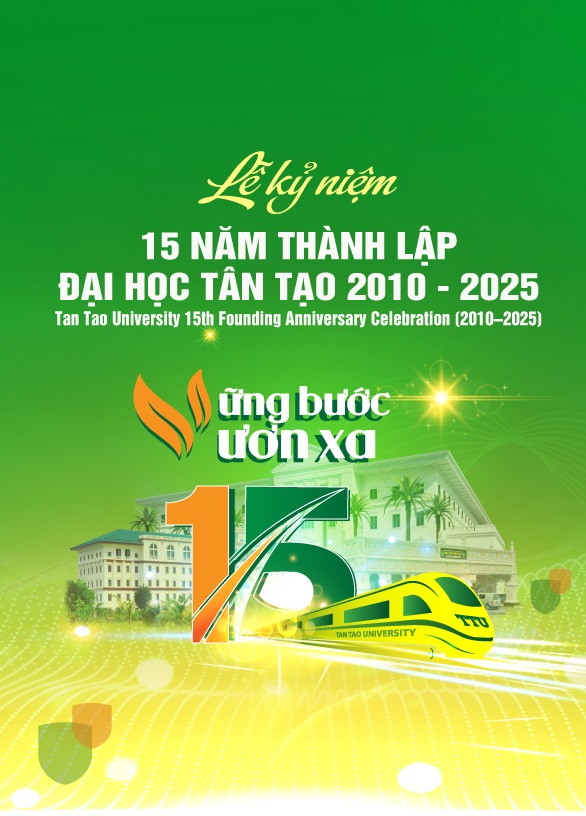Please give us your brief educational background. Was formal education a tool to your success, or if did you learn more by doing?
I am an entrepreneur, economist, academic, educator and philanthropist. I graduated from the University of Economics, Ho Chi Minh City in August, 1980. My formal education continues beyond those early years. On May 18, 2019, I received a PhD in Education from New England College, in Biddeford, Maine, USA. I was also awarded an Honorary Professor degree from the Academic Union Oxford, UK.
My father once said, “Our family is poor¾we have nothing to leave you. Only by getting an education will your life change”. It is my conviction that only education can help people change their life. I have persisted in learning, and improving myself in order to set an example for the younger generation.
I also hope to help shape the next Vietnamese generation to be committed to creative and critical thinking, to lifelong learning, to have personal integrity, civic responsibility and leadership. I wish to share with Vietnam what I believe to be some of the best American values. I founded Tan Tao University (TTU), the first private non-profit U.S.-style university in Vietnam, complying with American accreditation standards. My goal is to create a higher education institution with the same educational philosophy, standards and practices on the American liberal arts model of higher education.
Who were your role models when you were growing up? What did you learn from them?
Whenever I face seemingly insurmountable difficulties or obstacles, I always think of my father, who is regarded as a shining role model of being fond of work, of persistence and of a Never Give Up spirit. Moreover, my father is a compassionate person, and he always cares about other people. A situation that is always in my mind is that he checked and made sure his associates and chauffeur were seated at the lunch table, and then he returned to his seat at the table with the guests.
My father has always attached great importance and put knowledge first, which has created a driving force and exerted influence on importance of education and relentless learning throughout my life. My father has played a role of guiding my growth and maturity, motivating me to constantly strive to be a good role model for my siblings and the younger generation.
Who are the entrepreneurs that you admired? What about them resonated with you?
As an entrepreneur myself, I admire Mr. Warrant Buffett for his long-term investment strategy, his wisdom and consciousness in investment. He knows how to make a decision at the right time to bring the highest return. He has a bold and famous investment philosophy, “Be fearful when others are greedy and greedy when others are fearful,” and he believes in “long-term value investing”. This shows his consciousness, skills, and courage in investment. He maintains a cool head even when the market wobbles. Specifically, in 2008 when the global financial markets were failing, Buffett seized the opportunity to invest $25 billion in high-value stocks. Six years later, he earned a $10 billion profit.
Apart from doing well financially, what factors are important for a person to be considered ‘successful’?
In my opinion, success comes not only from wealth and material values but also from caring for the community as well as educating and giving opportunities to the younger generation. Therefore, ethics and moral values are always my top priorities.
During the past few years, I have been striving to bring humane values to the community in both Vietnam and the United States: creating tens of thousands of jobs for employees in the industrial parks owned by Tan Tao Group, transforming underserved agricultural areas with alum soil and waste land into hustling and bustling urban areas and hi-tech industrial zones, and granting more than 20,000 scholarships to talented students to attend Tan Tao University, so that they also have the opportunity to receive a quality education modeled after the top research universities in the United States. Personally, I myself have also donated millions of dollars to help talented students in the United States as well as to many charity organizations.
How different are you, in terms of personality and leadership style to other peers in your industry? Why do you think that difference has made you successful?
I think a good leader needs to have a few indispensable qualities: the passion for work, creativity, a Never Give-Up spirit and confidence in what she does. However, what makes my leadership style different is that I prioritize ethics and moral values. These foundational values create a sustainable environment in the development of a business enterprise, and are crucial to my success as a leader.
What characteristics make someone a good leader?
One of the crucial factors to effective leadership is relentless learning, because only education and knowledge can bring success. No matter which area you want to be successful in, the indispensable thing is the passion, putting in all of your efforts, dedicating yourself even forgetting about yourself because of work, and never flinching from difficulties and challenges. Because I always uphold ethical values in doing business, in addition to the financial development of the enterprise, a good leader needs to also care for the community in order to contribute, build and develop the community.
Do you think the idea of leadership has changed over the decades? If so, how? If no, why?
Advances in science and technology and the world’s economic integration globally have raised stricter requirements for leaders. The social changes and the market economy require a leader to have a flexible mindset, to apply advanced technologies in the production process, or to update new trends to bring the best services for her business. A leader must also adapt to the changes brought by globalization and treat it as an opportunity to bring the business to the world, expand market, and face the fierce competition in the market economy. In order to achieve a sustainable development of the business enterprise, a good leader needs to care for the community, become aware of the environmental protection, and uplift humane values and ethics.
What kind of a leader are you? What is your leadership style and how was it developed? Did it come from your personality, your education (business school etc..), or was it a combination of elements?
I’m a visionary-type of leader. My father once said, “You are the leading bird, so whichever direction you fly, your siblings will follow.” Perhaps that’s why right from the beginning in the family, a sense of responsibility formed in me to take the lead and guide my siblings. This requires me to have a far-reaching vision for the future, yearn to take up new things, seek new opportunities and never give up even when confronted by difficulties and challenges.
Part of my leadership style is also formed from a combination of many factors, including the environment, knowledge, and personality. I was born and grew up in Vietnam, a country suffering from many wars and instability. This forces me to have a far-reaching view as a matter of survival. In addition, knowledge has enabled me to perceive,, analyze and evaluate. The above combined has formed my American-inspired leadership style.
Any person who runs a business needs to be a leader. Can good leadership be taught? If so, how would you teach it?
A person interested in becoming a leader must have leadership qualities and desire to be a leader. However, if that person wants to become a good leader, she needs training. There are many factors that a person needs to become a good leader. First, it is necessary for a person to create and follow a long-term vision, in addition to setting specific goals expected by shareholders and investors. Secondly, honing their situational-handling skills. Last but not least, building a corporate culture in which the leader must be a typical role model. Apart from doing business well financially, a business enterprise leader needs to care for the community, become aware of the environmental protection, appreciate the beauty, and uplift core humane values and ethics.
How do you tackle human resource issues? Are you hands on, or do you delegate? How important is a good HR department to good leadership, and why?
For years, human resources have always played a critical role as the core capital source of an enterprise. Dynamic and creative human resources create useful values in the development strategy of an enterprise.
Leadership training for a business enterprise is the mission of a CEO and Chairwoman. Personally, I have directly offered leadership training to the leadership team. The successive leadership team is thought to be a solid foundation for an enterprise to develop sustainably. The leader is like the captain steering a ship in the ocean, and only a good captain would be able to steer her ship through the storms to reach the shore successfully.
What would winning the ACES Awards mean to you, and what do you hope to achieve with it, should you be selected as a winner?
ACES Awards is one of the most sought-after accolades that go to sustainable and pioneering business enterprises in Asia. Receiving this award would be a great honor as well as motivation for me and Tan Tao Group to further promote the core values, humanitarianism, corporate social responsibility, and commitment to sustainable development, as well as to strengthen the position of a pioneer enterprise in the coming years.
I hope my award will be a shining example, a driving force, and a goal for young leaders to strive for their best and commit to further promoting entrepreneurship in society, sustainable business growth, and contribute to the development of their community.















![Các trường xét học bạ ngành Logistics [Cập nhật mới nhất] Các trường xét học bạ ngành Logistics](https://ttu.edu.vn/wp-content/uploads/2025/11/cac-truong-xet-hoc-ba-nganh-logistics-218x150.png)
